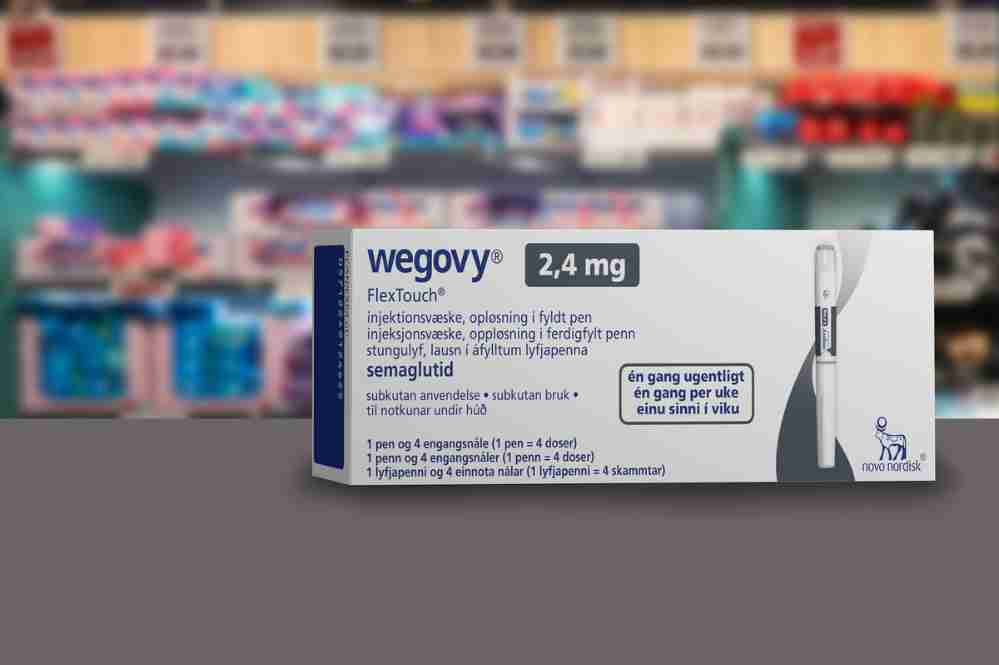Pharmacists, being at the frontline of medication distribution, are feeling the strain of the Wegovy® shortage. They’re dealing with this predicament in different ways, balancing customer expectations, product availability, and ethical considerations.
The first and most obvious course of action is to offer alternatives. Pharmacists are educating patients about other obesity management drugs, including Saxenda®, Plenity, or Contrave.
When requests for Wegovy® cannot be fulfilled, pharmacists often call the prescribing doctors and discuss alternatives. This patient-by-patient process is a highly personalized approach to alleviate the impacts of the shortage, but it’s also time-consuming.
Another challenge facing pharmacists is medication hoarding. To counteract this, many pharmacies are implementing limits on how many doses of Wegovy® patients can purchase at a time.
Pharmacies are also optimizing their supply chain management to maximize the accessible supply of Wegovy®. This includes exploring different suppliers, coordinating with manufacturers, and forecasting future supply accurately.
Moreover, pharmacists are taking the initiative to educate patients about weight management beyond medications. They are stressing the importance of a healthy diet, regular exercise, and lifestyle modifications.
Communication is proving to be a crucial tool for pharmacists during this shortage. Updating patients about the supply situation regularly and keeping open lines of communication helps manage expectations and lower anxiety levels.
Many pharmacies are also opting to maintain a waiting list system for Wegovy®, offering a fair system to distribute the drug as it becomes available.
Lastly, In critical cases, some pharmacists are working closely with healthcare providers to prioritize supply to patients in the most need. Hence, pharmacists, despite their limited resources, are trying their best to ensure that patient care is affected minimally during this shortage.
The shortage of the Wegovy® supply has significant health implications for the patients in need. Rising obesity rates and the limited effect of alternative treatments make Wegovy® a vital medication.
Those who’ve been on Wegovy® medication and suddenly find it unavailable might experience rapid weight gain. As already mentioned, fast weight gain could lead to a host of associated health problems, including high blood pressure, diabetes, and heart disease.
In addition to the risk of weight gain, a sudden stoppage in Wegovy®’s consumption could cause withdrawal symptoms. These could include mood swings, changes in appetite, irritability, and cravings.
Moreover, Wegovy® aids in managing diabetes by regulating blood sugar levels. Hence, the shortage might lead to unpredictable blood sugar fluctuations, causing health complications for diabetics.
Patients who switch to an alternative drug due to the lack of Wegovy® might need to adjust to the distinct side effects of the new medication. These could range from minimal side effects such as nausea, vomiting, or headaches to more severe ones depending on the drug and patient.
Mental health should also be considered. The uncertainty and stress surrounding the Wegovy® shortage might lead to increased anxiety and depression amongst patients.
Finally, the shortfall might result in patients resorting to unreliable, untested, or unsuitable treatments. These measures could lead to unforeseen health disasters, as not all weight management approaches are safe for every individual.
The health repercussions, therefore, are broad and multifaceted, making the Wegovy® shortage not just an issue of supply, but a critical public health concern.
The shortage of Wegovy® has set off a ripple effect within the healthcare industry, leading to significant financial impacts. With high demand and low supply, the cost of obtaining Wegovy® has escalated significantly.
As a result, many healthcare facilities and pharmacies are investing a sizeable amount in attempting to source the drug, which is depleting their financial resources. Additionally, the increased amount of time spent on managing the Wegovy® supply by healthcare administrators has upped the overhead costs.
Moreover, having to switch or stop therapy can lead to additional expenses. Altering treatment plans can lead to the need for additional doctor’s visits, new prescriptions, and possibly laboratory tests – all of which can add to the financial burden.
Increased supply chain costs due to frantic sourcing efforts and unexpected shipping costs have also added to the expenses. Skyrocketing demand, coupled with limited supply, has created a market conducive to price-gouging, where the medication can be sold at inflated prices.
Furthermore, rising prices might implicate insurance companies. With Wegovy®’s impeccable performance record and FDA approval, many insurance plans cover the drug. However, with elevated prices due to scarcity, insurance payouts have potentially increased.
Lastly, the manufacturer, Novo Nordisk, could be losing revenue due to halted or reduced production. The longer the shortage lasts, the longer they are unable to cash in on the high demand for the drug.
Hence, the Wegovy® shortage has generated significant financial implications within the healthcare industry, exacerbating an already tense and complicated situation.
In response to the incredibly high demand, Novo Nordisk, the manufacturer of Wegovy®, has stated that they’re prioritizing the acceleration of production to meet patient needs.
Novo Nordisk has confirmed that they have been investing in ramping up manufacturing for Wegovy®, including expanding facilities and sourcing required materials. However, this is a time-consuming process and will not remedy the shortage immediately.
The company has also addressed the global shipping challenges that contributed to the shortage and is implementing plans to streamline logistics and improve the medication’s distribution.
Novo Nordisk has stated their commitment to ensuring the global availability of Wegovy®. They’re focusing on expanding their supply lines, intending to make the drug available in all major markets.
Several healthcare authorities are also involved in resolving the shortage. For example, the FDA has stated its commitment to working with manufacturers to address drug shortages swiftly.
Furthermore, Novo Nordisk is actively communicating with healthcare professionals, pharmacies, and directly with patients to provide updates regarding the Wegovy® availability situation, which is a positive sign of their commitment to rectifying this shortage.
To conclude, while there’s a solid plan in place to increase the Wegovy® production, patience is required as expanding pharmaceutical production capacity isn’t a quick or simple task.
There isn’t a definitive answer to when the shortage of Wegovy® will end. The process of scaling up pharmaceutical production is complex and time-consuming.
Furthermore, the global aftermath of the COVID-19 pandemic is still influencing global manufacturing and shipping capabilities, which adds further uncertainty to the timeline.
Novo Nordisk hasn’t stated a definitive end date for the shortage. However, they have reported that they’re in the process of expanding their production and supply lines, aiming to stabilize the availability of Wegovy®.
Healthcare professionals and experts also predict that it might take a significant amount of time to completely resolve the shortage due to the incredibly high demand for Wegovy®.
Temporary solutions like restricting the purchase quantities, maintaining a balanced distribution, and prioritizing cases based on severity are being applied in the meantime.
While no one can specifically predict when the Wegovy® shortage will end, it’s clear that efforts are being made on numerous fronts to increase the supply, thus offering hope for the future availability of the drug.
Patients dealing with the shortage of Wegovy® have several strategies at their disposal to manage their situation. It’s important to stay in close contact with healthcare providers during this time to discuss specific individual needs and concerns.
If Wegovy® is unavailable, patients should consult their healthcare provider regarding alternative medications or treatments. Several FDA-approved weight-loss drugs and treatments are available that can be considered.
Patients can also converse with pharmacists about the shortage. Pharmacists can offer advice about possible alternative treatments and might have the most up-to-date information about the Wegovy® supply in their area.
Another important coping method is to maintain other aspects of a weight management plan. This includes adopting a healthy diet, exercising regularly, and cultivating a positive mindset towards weight loss.
Avoid the temptation to hoard medication. This behavior can exacerbate the shortage and isn’t healthy or ethical. Instead, maintain regular communication with the drug supplier to know when the medication will be available.
Patients should also remain informed about the status of the Wegovy® supply situation by keeping a close eye on announcements from Novo Nordisk or their healthcare provider.
Finally, while Wegovy® is an effective treatment for obesity and diabetes, it’s not the sole method to manage this health issue. Patients should embrace comprehensive lifestyle changes and other treatments to effectively manage their condition through the shortage.


